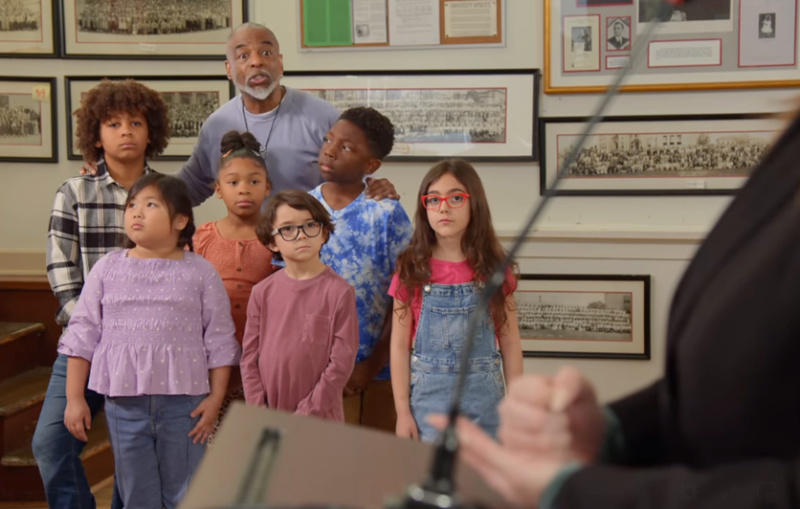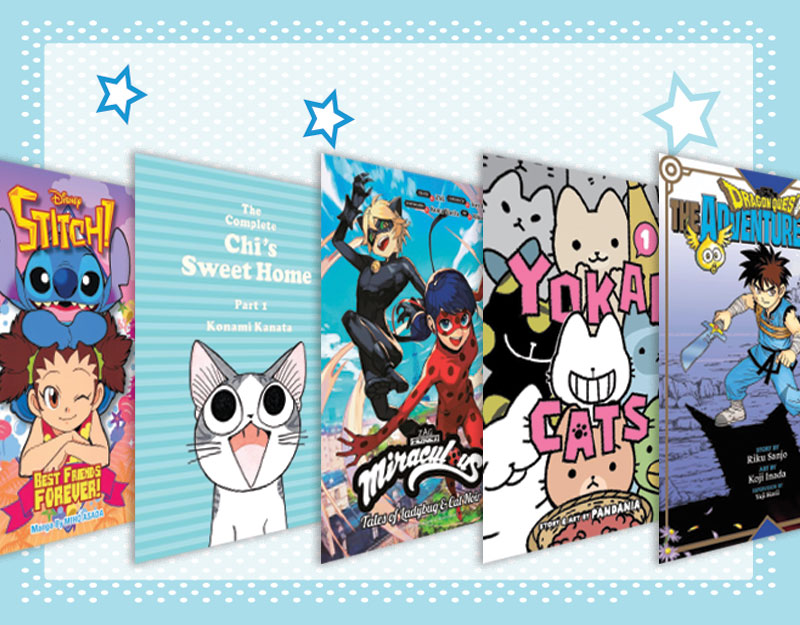Interview: Jean Schulz, Peanuts, and ALA
 When the universe asks you if you would like to interview someone along the lines of Jean Schulz, wife of Peanuts creator Charles “Sparky” Schulz, the correct answer is somewhere along the lines of , “YES YES YES YES YES!” And so it was that by some complete quirk of fate, I found myself speaking with Ms. Schulz recently. What follows is a conversation covering everything from Sparky’s own interpretations of whether his work could be considered “art” to the recent pairing of Peanuts with ALA to the role of libraries in the world.
When the universe asks you if you would like to interview someone along the lines of Jean Schulz, wife of Peanuts creator Charles “Sparky” Schulz, the correct answer is somewhere along the lines of , “YES YES YES YES YES!” And so it was that by some complete quirk of fate, I found myself speaking with Ms. Schulz recently. What follows is a conversation covering everything from Sparky’s own interpretations of whether his work could be considered “art” to the recent pairing of Peanuts with ALA to the role of libraries in the world.
Betsy Bird: Just to recap, Peanuts, as I understand it, is pairing with ALA for library card sign-up month. At the same time Andrews McMeel the publishing company, is publishing Snoopy Cowabunga, now with a range of parenting reading tips (I think they’re even calling it Core Curriculum aligned). So what has been your role with all of this?
ADVERTISEMENT
ADVERTISEMENT
Jean Schulz: Actually, I haven’t had any particular role except to say, “Yes, please pursue this.” It was actually Craig Herman who works for Peanuts Worldwide who pursued it. We’re the board members here at Charles M. Schulz Creative Associates and we said yes go ahead. We said this is terrific because Peanuts is a perfect outreach to kids. It makes a perfect marriage. I think Peanuts is perfect. Anyway it’s a perfect marriage.
BB: What is your personal take on libraries?
JS: I don’t remember going to the library as a kid because I lived way out in the country. But school libraries, yes. We didn’t have computers so all of us used school libraries, all of us learned the Dewey Decimal System. The library was just part of life when I grew up. And when I had kids in the 60s we went to the library all the time. I’ve never been on the library commission board but we live in such a small community that the library, and donating your books to the library, and going to the library booksale, being a part of that whole community of the library and its fundraising and its storytelling, has been just part of my life. I mean I don’t know whether people are predicting that libraries are going the way supposedly the newspapers are but I don’t think so. I still see families lined up to get into the library when it opens.
 BB: So I grew up with Peanuts. My parents grew up with Peanuts. And now with Snoopy Cowabunga and the kids still reading newspaper comics we have children today growing up with Peanuts. How do you account for its longevity? What has kept it going all these years?
BB: So I grew up with Peanuts. My parents grew up with Peanuts. And now with Snoopy Cowabunga and the kids still reading newspaper comics we have children today growing up with Peanuts. How do you account for its longevity? What has kept it going all these years?
JS: I think that it is because Peanuts deals with the real issues of life. It deals with love, it deals with sadness, it deals with bossy people, it deals with shy people, it deals with success. You know Charlie Brown is known for his failure but he never gives up. It is a small microcosm of life, and then there is Snoopy who is everybody’s alter ego. Sparky, my husband, used to say (I’ll refer to him as Sparky), “Snoopy is everything I would like to be and am not.”
BB: Ah. Like Walter Mitty.
JS: Yes. Exactly. And it really speaks to you. When you’re a child and read comic strips it’s speaking to you. You take seriously Charlie Brown’s heartache. You take seriously Sally’s dislike of school trips. You know you don’t want to go on the school trips either. But when you get older you relate to those same things in an adult way. And that is the secret of the comic strip is that it speaks to people on their own level. I don’t know how Sparky did that. That is a small miracle. That by encapsulating it with humor he could make it acceptable to all levels, probably all educations, all cultures!
BB: That’s true. I think that the great comics that came after Peanuts did similar things and followed in its footsteps, in that adults would get as much of a kick out of them as kids. They would sort of cross generational lines. It’s funny, I never thought of it that way.
Now what is your take on kids and comics? In the past comics were seen as throwaway literature. You know, no one would have given them any literary merit. But these days you know libraries and teachers and parents are embracing them. What’s your take on all that?
ADVERTISEMENT
ADVERTISEMENT
 JS: Well, there are two things. One is that my mother used to give comic books credit for teaching my brother to read. Kids learned to read all the time with comics. And obviously the comics in the paper come and go so fast, four seconds maybe, that by the time you put them in a book, which is what Andrews McMeel has done, you have given it a continuity. And if you don’t know a word, the pictures help you. Although I have to say in Peanuts it’s probably a little more subtle. If you read the little early readers it’ll say “She saw the dog.” And Mary and the dog are there. Peanuts is more subtle than that, but still, the pictures are fun to look at and make you want to read the words, want to learn the words. And, of course, because now they call many new comics graphic novels they now have an acceptability in the marketplace. Some of the people who do graphic novels don’t want them to be called “novels”. They really like the term “comics!” And they think that people calling them graphic novels do so that they will be more acceptable in the bookstores.
JS: Well, there are two things. One is that my mother used to give comic books credit for teaching my brother to read. Kids learned to read all the time with comics. And obviously the comics in the paper come and go so fast, four seconds maybe, that by the time you put them in a book, which is what Andrews McMeel has done, you have given it a continuity. And if you don’t know a word, the pictures help you. Although I have to say in Peanuts it’s probably a little more subtle. If you read the little early readers it’ll say “She saw the dog.” And Mary and the dog are there. Peanuts is more subtle than that, but still, the pictures are fun to look at and make you want to read the words, want to learn the words. And, of course, because now they call many new comics graphic novels they now have an acceptability in the marketplace. Some of the people who do graphic novels don’t want them to be called “novels”. They really like the term “comics!” And they think that people calling them graphic novels do so that they will be more acceptable in the bookstores.
BB: Well, kids never ask for graphic novels. Kids ask for comics.
JS: That’s a good point. Anyway, Sparky used to say “I am a cartoonist. That’s what I want to be, that’s what I do, it’s my profession. I don’t need to be an artist”, which of course he was because his drawings spoke to people. “And I don’t need to be a writer.” He said, “Don’t flatter me by saying” (and I’m not saying these are his exact words) “oh you’re a great writer, oh you’re a great artist. I’m a cartoonist.” And his point was, that was sufficient because that was a time honored way of communicating with people. And you know people say the first cartoons were the ones on the walls of the caves.
BB: The original visual storytelling.
JS: Exactly.
 So you asked what is my association with libraries. My father loved reading, so when he died in 1973, he lived in a small town in Mill Valley where he had lived for 30 years. His wife asked for donations to be made to the library. Somewhere I used to have a list of the 50 books that they had bought with the money that came in, which was really nice to know. Of course those books don’t last forever. Back in 1973 we had given the money to the library or asked that people forward their money to the library and about ten or twelve or fifteen years later, probably late 80s, I wanted to do something additional. I asked the library how they could use an endowment which would produce about maybe $2500 a year. And they said storytelling. Hiring storytellers to come in. And so with the money they developed regular storytelling events, I think they have three or four a year, and it’s to keep mid-teens coming to the library. Because, you know, moms bring their children, dads bring their children, but when they get to be about 13 maybe they don’t want necessarily to come because they associate that with being younger. They developed the storytelling program that would bring in moms and 13, 14, 15 year-olds. I haven’t been to any because Mill Valley is still an hour drive from me, but they are late afternoons, early evenings, and invite parents and slightly older children back into the library for adventurous stories that they can all enjoy. So libraries have always been important.
So you asked what is my association with libraries. My father loved reading, so when he died in 1973, he lived in a small town in Mill Valley where he had lived for 30 years. His wife asked for donations to be made to the library. Somewhere I used to have a list of the 50 books that they had bought with the money that came in, which was really nice to know. Of course those books don’t last forever. Back in 1973 we had given the money to the library or asked that people forward their money to the library and about ten or twelve or fifteen years later, probably late 80s, I wanted to do something additional. I asked the library how they could use an endowment which would produce about maybe $2500 a year. And they said storytelling. Hiring storytellers to come in. And so with the money they developed regular storytelling events, I think they have three or four a year, and it’s to keep mid-teens coming to the library. Because, you know, moms bring their children, dads bring their children, but when they get to be about 13 maybe they don’t want necessarily to come because they associate that with being younger. They developed the storytelling program that would bring in moms and 13, 14, 15 year-olds. I haven’t been to any because Mill Valley is still an hour drive from me, but they are late afternoons, early evenings, and invite parents and slightly older children back into the library for adventurous stories that they can all enjoy. So libraries have always been important.
And when you look at the comic strips, Sparky was a storyteller. That’s what he was doing.
For the best children’s biography of Mr. Schulz of all time, please be sure to check out Sparky: The Life and Art of Charles Schulz. Many thanks to Alison Hill for arranging for the interview and to Ms. Schulz herself for taking time out of her day to speak with me.
Filed under: Interviews
About Betsy Bird
Betsy Bird is currently the Collection Development Manager of the Evanston Public Library system and a former Materials Specialist for New York Public Library. She has served on Newbery, written for Horn Book, and has done other lovely little things that she'd love to tell you about but that she's sure you'd find more interesting to hear of in person. Her opinions are her own and do not reflect those of EPL, SLJ, or any of the other acronyms you might be able to name. Follow her on Twitter: @fuseeight.
ADVERTISEMENT
ADVERTISEMENT
SLJ Blog Network
Name That LEGO Book Cover! (#53)
Exclusive: Vol. 2 of The Weirn Books Is Coming in October | News
Fighting Public School Book Bans with the Civil Rights Act
Take Five: Middle Grade Anthologies and Short Story Collections
ADVERTISEMENT






